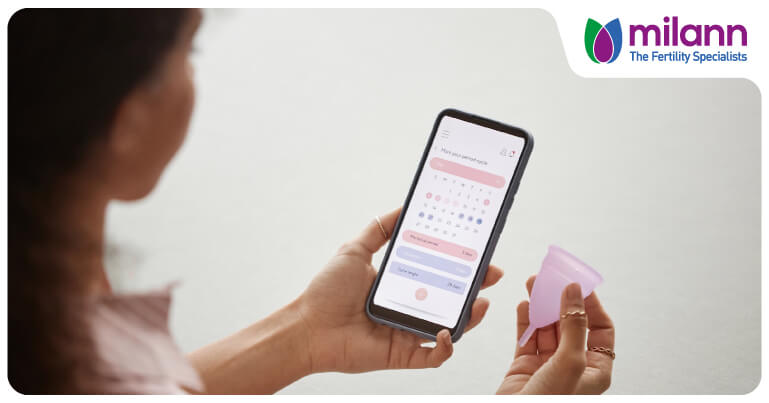It is a common misconception that age-related fertility decline is an abrupt cliff, but in reality, it’s a gradual process that begins in the early 30s and becomes more noticeable after 35. If you’re over 35 and trying to conceive, you may be using a fertility calculator to time your intercourse. But how accurate are these tools for women in your age group? Let’s break down what fertility calculators can and can’t tell you.
What Is A Fertility Calculator?
A fertility calculator is an easy-to-use online tool that helps women identify their most fertile days, the time during their menstrual cycle when the chances of conception are highest. By entering details such as the start date of your last period and your average cycle length, the calculator estimates your ovulation date and highlights the days before and after ovulation when you’re most likely to get pregnant.
How Fertility Calculators Work
A fertility calculator estimates ovulation based on your cycle length and the date of your last period. It assumes that ovulation occurs about 14 days before your next expected period.
Limitations of a Fertility Calculator
While the estimation based on ovulation tracking works reasonably well for women in their 20s or early 30s with regular cycles, its accuracy decreases with age.
After 35, hormonal fluctuations become more common, ovulation may become less predictable, and egg quality begins to decline. Fertility calculators don’t account for these biological changes. That means even if your period seems regular, your ovulation may not always align
with what a calculator predicts.
Why Fertility Calculators May Be Less Predictive for Women Over 35
Women over the age of 35 often face fertility challenges that go beyond what a basic fertility calculator can detect. While these tools can help estimate ovulation based on cycle dates, they don’t account for age-related changes in reproductive health. One common issue is a shorter
luteal phase, which is the time between ovulation and the start of the next period. A shortened luteal phase may not give a fertilized egg enough time to implant properly in the uterus. Additionally, women in this age group may experience anovulatory cycles, where ovulation doesn’t occur at all, making natural conception difficult to time. Perhaps most significantly, egg quality tends to decline after 35, which can affect fertilization and embryo development. There’s also an increased risk of chromosomal abnormalities, which can lead to failed implantation,
miscarriage, or genetic conditions. These hidden factors highlight the importance of going beyond calculators and seeking personalized fertility guidance, especially for women trying to conceive in their late 30s and beyond.
These factors mean that ovulation may not only occur at unpredictable times but may also be less likely to result in successful fertilization and implantation. A fertility calculator can’t track these changes, so relying solely on it may delay the decision to seek medical guidance.
Importance of Clinical Testing
If you’re over 35 and have been trying to conceive for more than six months, fertility experts recommend undergoing a comprehensive fertility evaluation. This includes tests like:
AMH (Anti-Müllerian Hormone): Indicates your ovarian reserve (number of eggs remaining).
Follicular Scans: Ultrasound scans that track follicle development and ovulation.
Hormonal Profile Testing: Identifies imbalances in estrogen, progesterone, FSH, and LH levels.
These diagnostic tools provide insights that fertility calculators simply cannot. They allow your fertility specialist to design a personalized treatment plan that reflects your unique reproductive health.
Combining Technology with Expertise for Success
Fertility calculators are not useless after 35, but they’re viable when used in conjunction with other methods. Monitoring ovulation symptoms, using OPKs, and consulting with a fertility expert will give you a fuller, more accurate picture.
Rather than depending entirely on a calculator, use it to build awareness of your cycles while seeking professional advice. The goal isn’t just to track your fertility, it’s to act on the data in a way that leads to success.
Book a Fertility Screening at Milann
If you’re over 35 and trying to conceive, don’t rely solely on apps or calculators. Get personalized insight through Milann’s fertility assessment programs. Book your fertility screening today and move from questions to clear answers, with expert support every step of the way.
Reviewed by
Dr. T. Shilpa Reddy Consultant - Reproductive Medicine, Kumara Park.
